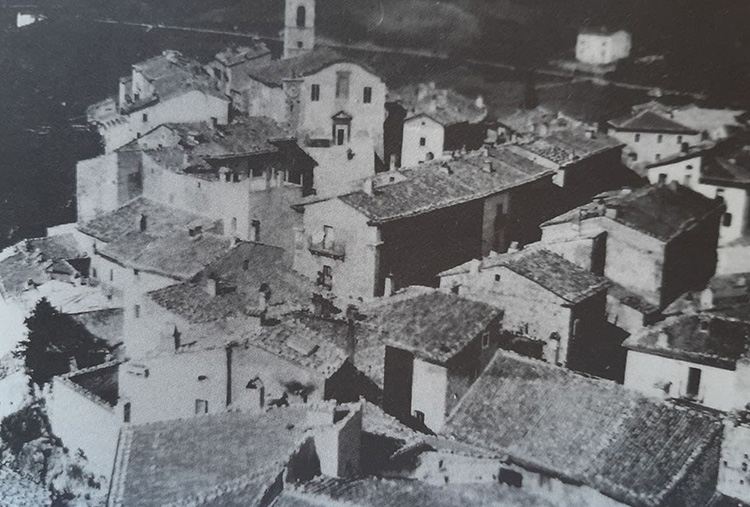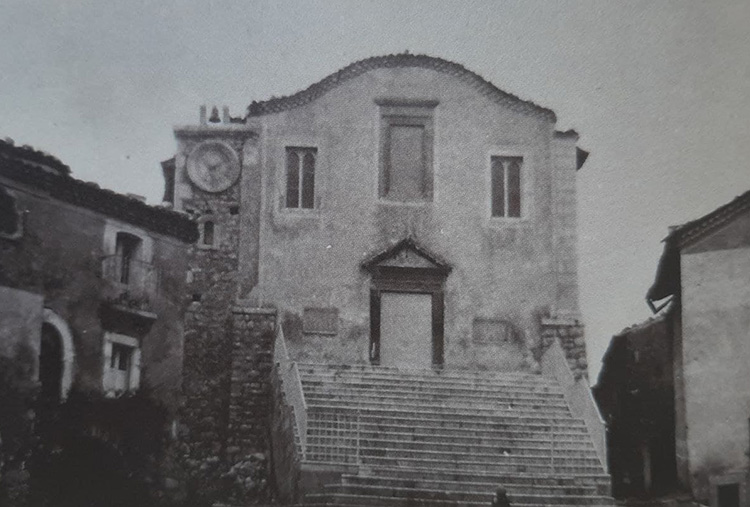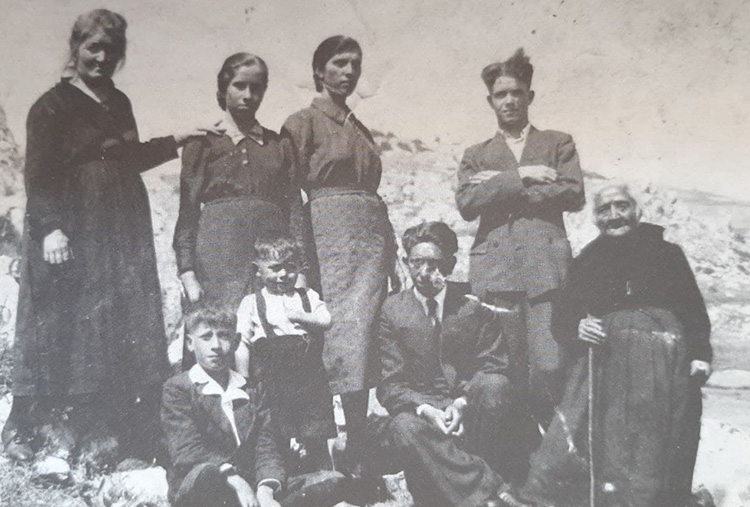Pietransieri and the war
Pietransieri, the stone, in Abruzzi dialect "La prete". In November 1943 the village, in the Municipality of Roccaraso in Abruzzo, consisted of a few groups of houses around a church. About 1400 meters above sea level, with a population of around 400 individuals.
The village included 876 animals mostly cows, sheep, horses and donkeys. It's a restricted and isolated area, without telephone, public lighting and electricity that revolves around a peasant life linked to sheep farming, agriculture and small trades.
For the People of Pietransieri ("Pietransieresi"), to arrive in Sulmona it's like taking a trip to distant lands and remote destinations; most of them have never even been there.

The inhabitants of nearby Roccaraso, already known for its beauty, elegance and worldliness, referred to the People of Pietransieri ("Pietransieresi") "Cuozz", a dialect term to define those stubborn, rough people, attached to their few things.
Roccaraso has a mayor, Ippolito del Castello, while in Pietransieri the municipal administration is mostly represented by the municipal guard Italino Oddis.


In the late summer of 1943, it seems that the historical context of the world is finally about to change, that the war has reached a turning point and for this small corner of the world wedged in the heart of Abruzzo, the conflict is a distant affair.
Natalia Ginzburg, a writer and playwright living in Abruzzo, says in this regard:
"We thought, the war would immediately turn everyone's life upside down and inside out. Instead, people remained undisturbed in their homes for many years, continuing to do what they had always done. Just when everyone thought they had got off lightly and there would be no upheaval whatsoever, no houses destroyed, no flight or persecution, suddenly bombs and mines exploded everywhere and houses collapsed, and the streets were full of ruins, soldiers and refugees. And there was no longer one who could pretend nothing was wrong, close his eyes and plug his ears and put his head under the pillow, there was not. That's how the war was in Italy."
On September 8, 1943, Marshal Pietro Badoglio declared:
"The Italian government, recognizing the impossibility of continuing the unequal struggle against the overpowering adversary power, with the intention of sparing further and more serious both to the nation, has requested an armistice from General Eisenhower, commander in chief of the Anglo-American forces. The request has been accepted, consequently every act of hostility against the Anglo-American forces must cease by the Italian forces in every place. They will, however, react to any attacks from any other source."
An almost festive atmosphere flares up in the air, the joy of those who want to sing victory waving the white flag. After the hour of irrevocable decisions that had irrevocably marked the destiny of the country and of entire generations, the hour of truce, if not peace, seemed to have arrived.
People are toasting, rejoicing and breathing sighs of relief.